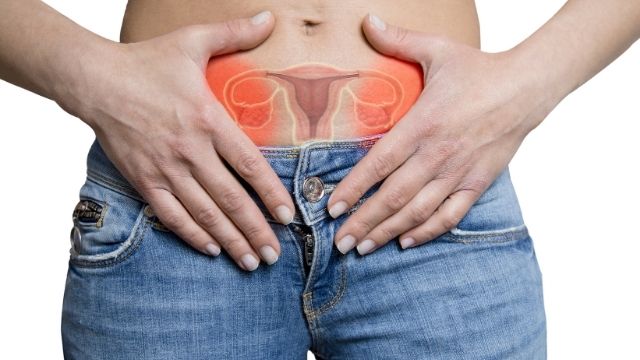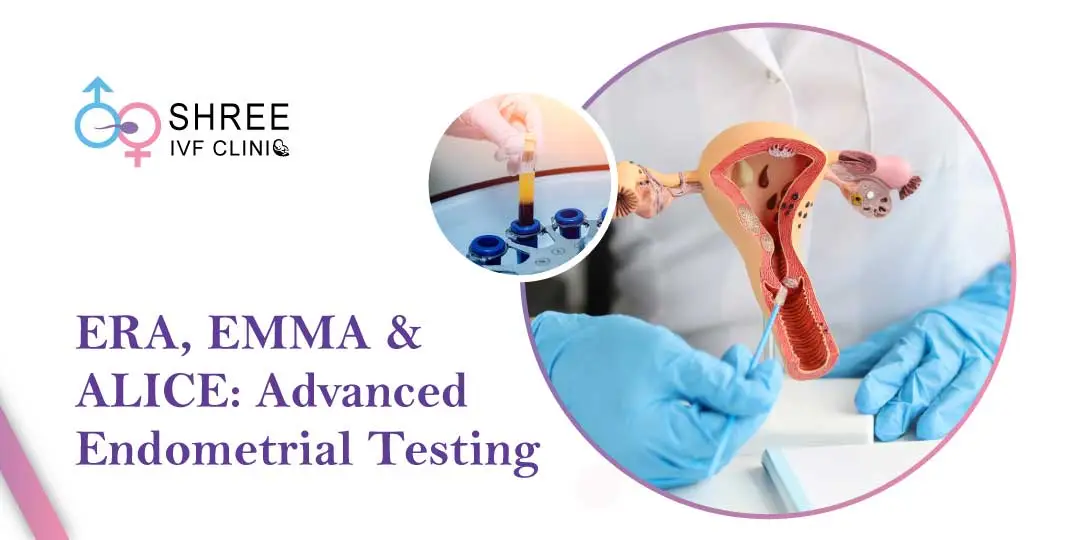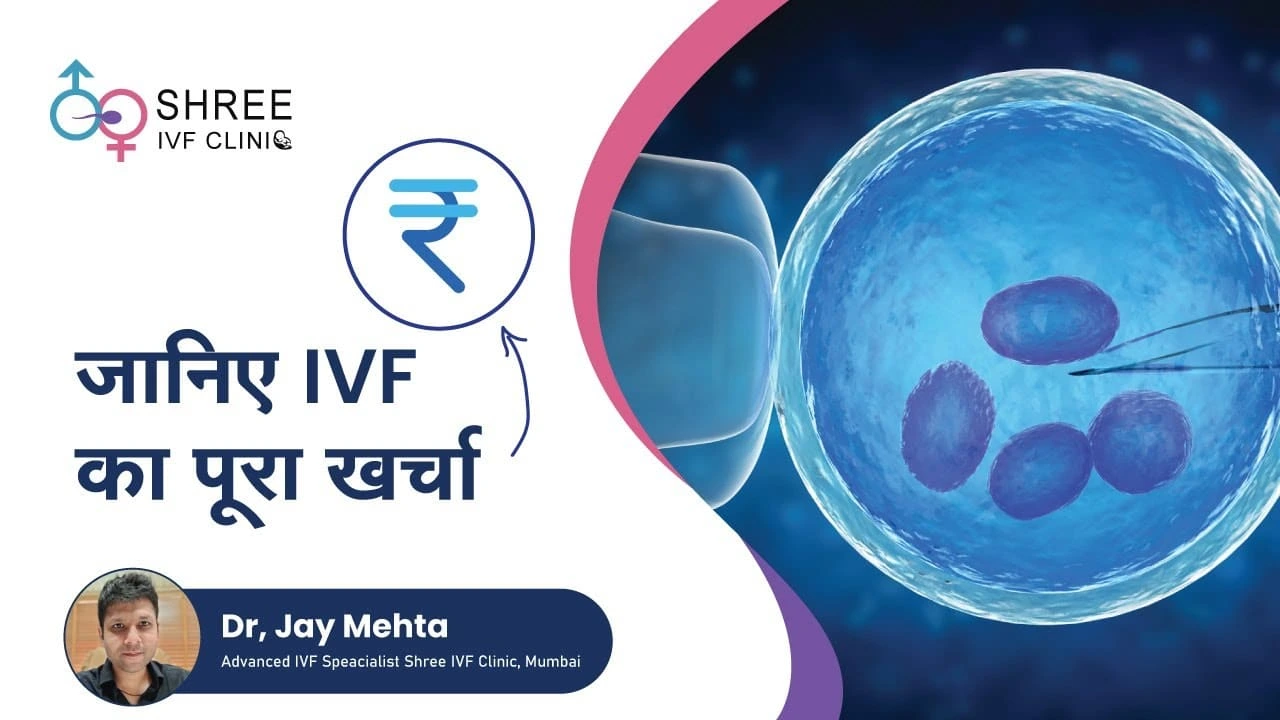Laparoscopic Ovarian Cyst Surgery

What is Laparoscopic Ovarian Cyst surgery?
Many women do face the problem of cysts. However, the only problem is, the symptoms of ovarian cyst are invisible. In a few cases, women face weight gain, irregular menstrual cycles, etc. However, if the cysts cause pain or discomfort, then it is always a good idea to opt for surgical procedures. Ovarian cyst removal is surgery to remove a cyst or cysts from 1 or both of your ovaries. Laparoscopic surgery uses small incisions and specialized tools. It may offer faster recovery times than open surgery, which uses a larger abdominal incision.
Everything You Need to Know About Laparoscopic Ovarian Cyst surgery
Purpose | Symptoms | Side Effects | Complications | Recovery | Candidates | Procedure | What to expect | Advantages | Cost
Why ovarian cyst surgery done?
Although an unruly lifestyle is not a good idea, many women do face the problem of cysts. However, the only problem is, the symptoms of ovarian cyst are invisible. In a few cases, women face weight gain, irregular menstrual cycles, etc. However, if the cysts cause pain or discomfort, then it is always a good idea to opt for surgical procedures.
Pelvic pain during periods or sexual intercourse is also a common symptom. Besides, ignoring ovarian cysts, in the end, can cause ovarian cancer. Due to this reason, it is always a good idea to remove the cyst buildup.
Symptoms of an Ovarian Cyst
Initially, the ovarian cyst does not show up any such symptoms. It is important to understand that ovarian cysts are quite common these days. However, if you see that you are skipping periods every month and having unexplained weight gain, then it is best if you see a doctor.
Some common symptoms of ovarian cyst include pressure, bloating, pain in the lower abdomen. Ignoring ovarian cysts will give rise to further complex symptoms.
- Pelvic pain
- A dull ache in the lower back as well as thighs
- Pain while having sex
- Sudden weight gain
- Unusual vaginal bleeding
- Needing to urinate more often
- Painful periods
Book Your Consultation Today With an Laparoscopic Ovarian Cyst Surgery Specialist in India – Dr Jay Mehta
Side effects of ovarian cyst removal
Once the surgery gets over, you might face mild to severe side effects depending on the severity of your condition. However, few common side effects that you might suffer post-surgery are discomfort in the lower tummy. Apart from that, pain in your shoulder, small amounts of vaginal bleeding for forty-eight hours, etc.
You might also feel tired for some days; however, with proper diet and care, you will be able to recover within a few days. If you still feel that the problems are continuing, then it is best if you consult a doctor.
Complications of Ovarian Cyst Removal
It is important to understand that complications are quite rare. But, it is important to understand that none of the surgeries are completely risk-free. If you are planning to opt for the complications of ovarian cyst removal, then it is best to consult your doctor.
They will let you know everything about the complications that you might suffer post-surgery. Complications that you can face after ovarian cyst removal varies from person to person. Some of them include infection, bleeding, the cyst might return, infertility, blood clots, etc.
Recovering from the Ovarian Cyst Removal
The recovery procedure, once again, depends on the severity of your condition. Once the surgery completes, you will feel pain in your tummy for a few days. However, with the right medication, you will soon be able to recover from it.
Ideally, it takes about twelve weeks before you can begin with your daily activities. It is important to follow a healthy lifestyle to heal. In case the cyst is small, doctors may not recommend surgery. But, if the cyst gets larger, then it is best to opt for getting surgery.
Who should get the procedure?
For women who have swollen ovaries or suffer from irregular menses, then it is best if you opt for laparoscopic ovarian cyst surgery. Besides, if you constantly face pain in the lower abdomen area, doctors mostly recommend opting for laparoscopic cyst surgery.
Apart from that, women who are planning for pregnancy and have PCOS should check if they have ovarian cysts. Otherwise, it will become difficult for them to conceive. Consulting with the gynecologists gives a better idea of what needs to be done if you have ovarian cysts.
If you have extreme hormonal issues, then the doctor will first give medications to balance the hormone levels, and then opt for the surgery.
Laparoscopic ovarian cystectomy procedure steps
Before the surgery begins, you will have to follow certain procedures that will help in making the surgery successful. Some of the steps that you have to follow before the surgery are.
- Avoid eating or drinking anything, especially after midnight before the surgery day.
- As you will be under anesthesia before the surgery begins, make sure that you are taking the help of someone who will drive you to the hospital.
- Arrive at the hospital before the surgery begins so that the doctors can have enough time for the pre-surgery procedures.
- You can ask your provider questions before the surgery begins regarding the medications. Whether you must stop or take new medicines or pre-existing medications that will help with the surgery.
- Before your surgery is scheduling, diligently follow all the instructions both pre and post appointments.
What happens during ovarian cyst removal?
Before proceeding with the surgery, doctors will give local anesthesia so that the surgery becomes easy. A laparoscope or a thin tube is inserted inside the abdomen that has a camera on the end. The camera is kept at the side of the navel, making a small incision.
If necessary, more incisions are made in the abdomen. Surgeons use sir inside the abdomen so that it makes enough space inside the abdominal wall as well as the organs. After that, they use various surgical instruments for removing the cyst.
What to expect after an ovarian cyst surgery
Once the surgery is over, you will face an abdominal sore along with bruises for a few days. Besides, you might face pain in your shoulders and back due to the gas inside your abdomen during the surgery. Immediately after the surgery, you will face vaginal discharge as well as spotting for some days.
Doctors will use skin adhesives for closing the incisions and cover the area with Band-Aids. However, you can remove the bandages within twenty-four hours after the surgery. Within a few days, the adhesives or the stitches will disappear without causing any pus or infection.
In case you have small bandage trips, after seven days, you can easily remove them. Even if they do not fall off, you can easily remove them within seven days. The only thing that you have to keep in mind not to go swimming or soak incisions in a bathtub.
Bathing is okay, but avoid rubbing the operated area. Within the first week of the surgery, you will feel excessively tired. However, you must not rush, as you have to slowly work on your activity levels starting with short walks. When it comes to sexual activities, you can begin once you feel comfortable.
Advantages of laparoscopic ovarian cystectomy
Although ovarian cysts are quite normal, it is important to understand that ignoring them can lead to ovarian cancer. Some of the common symptoms of ovarian cysts include irregular periods, bloating, nausea, and pelvic pain during intercourse, etc. However, if the problem worsens, then you will continuously face pain in the lower abdomen.
To avoid cancer or other severe diseases, surgery is the best option. With laparoscopic ovarian cystectomy, your menstrual cycle will regularise and the problem of abnormal bleeding will reduce. Besides, if you are planning for a baby, you will have a successful pregnancy.
Laparoscopic ovarian cyst surgery cost
Normally, the Laparoscopic Ovarian Cyst surgery cost depends on the location. However, the average cost ranges from 20,000-40,000, depending on your severity.

Dr. Jay Mehta
MBBS, DNB—Obstetrics & Gynecology
IVF & Endometriosis Specialist, Laparoscopic Surgeon (Obs & Gyn)
Dr. Jay Mehta is a renowned IVF specialist and fertility-preserving surgeon in Mumbai, India. He is the director of Shree IVF and Endometriosis Clinic, Mumbai. He is a leading laparoscopic gynecologist in India for endometriosis and adenomyosis.
He is a well-known fertility and IVF specialist and also among the few doctors in the country who specialize in embryology and andrology. He operates India’s major cities, including Mumbai, Pune, Chennai, Hyderabad, Bangalore, Ahmedabad, Agra, Delhi etc.
To book an appointment, call: 1800-268-4000 or fill out our contact form

Google Reviews

Ankita Katyal

I am incredibly grateful for Dr. Jay's exceptional support throughout my IVF journey. Dr Jay has been like God sent an Angel for us. From our very first meeting, it was clear that Dr. Jay was not only a highly skilled and knowledgeable professional but also someone who genuinely cared about my well-being.
From my first meeting, he was very clear transparent, and straightforward about my protocol, treatment line, and success rate. After two difficult IVF cycles that failed, I was beginning to lose hope.
However, Dr. Jay’s unwavering encouragement and meticulous care helped me stay positive and focused. Thanks to God and of course to his expertise and dedication, WE FINALLY ACHIEVED SUCCESS!!!!!

Krish A

Dr Jay Mehta is the best Fertility doctor. I am glad to have IVF done with Jay sir.
This unit is very ethical and very honest at work. In my previous IVF cycle, I did not have embryos in Chennai. I was here and Dr and team had told me not to worry. I was given end to end transparency about my embryos and I was lucky to become pregnant in the 1st cycle here, though I was told that the success rate will be about 25 to 30%.
IVF space is competitive, but these guys don't do any Ads on Google. And still if you search, Dr Jay is ranked no.1. I was extremely impressed with that and I am happy that I took a call to travel to Mumbai from Chennai.
I am thankful to the entire team for handling my case nicely. And May God shower the team with his choicest blessings.

Forum Shah

I visited 3 years back for my IVF treatment at that time and also got good treatment with Dr. Jay Mehta … the best part is he would tell me straight away whatever the cause and outcome would be.
This time also I came for Endometriosis treatment n within 3-4 days decided to get operated as there was no looking back as I trust him for his treatment. Thank you Dr once again for the right advice 😊

Deepak Jagadale

Dr Jay Mehta and team are simply excellent people and brilliant outcomes in Fertility services. Very very honest and humble doctor.
Thank you for the valuable guidance during the IVF process and the excellent and no hidden costs during IVF procedure. For middle class people it's a big relief.

Avinash Jain

Dr. Jay Mehta is a result-oriented specialist in his field and the best we could ask for, in a Metro city. His line of treatment for IVF is different from other IVF clinics.
The support provided by doctors and staff as well as all other attending doctors is phenomenal. We are very satisfied and will also highly recommend to others the IVF treatment at Shree IVF Clinic Mumbai.

Vijaya Garg

Dr. Jay Mehta is one of the best gynaecologist doctor of our India. I trust him faithfully and would like to recommend each and every one that don't waste time moving here and there to another doctorand .
I m sharing my experience I wasted my time mand oney by moving from one doctor to other and my problem was unsolved I'm thankful to Dr. Priyanka Shukla mam of trident hospital for suggesting Dr. Jay Mehta sir for my treatment . Now I'm pain-free...Thank you Dr. Jay Mehta sir... you are really my Boley baba shiv shsmbu. I m thankful to all the staff members of Shree IVF hospital
Blogs

How Safe is Laparoscopic Surgery?
Laparoscopic operations are minimally invasive procedures used to treat disorders such as gallbladder stones, hernias, hysterectomy, endometriosis, and uterus removal.
Videos

Advanced Endometrial Testing Explained: ERA, EMMA & ALICE
What are ERA, EMMA & ALICE tests? They are advanced tests that check if your uterus is ready for embryo implantation and can help improve IVF success

Hidden Cost of IVF Treatment
A single IVF cycle in India can cost anywhere from ₹1,50,000 to ₹2,25,000. Some clinics offer lower prices but may exclude medicines, freezing, and hatching from the package

